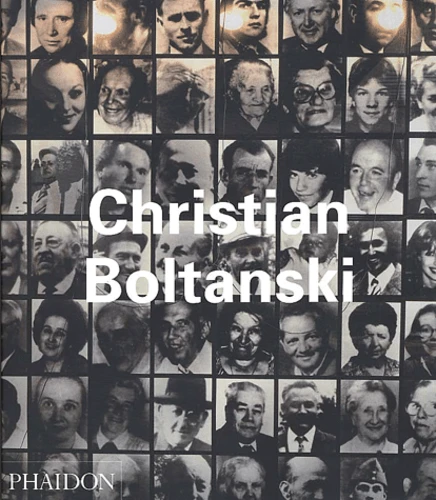Christian Boltanski
Par : , ,Formats :
Actuellement indisponible
Cet article est actuellement indisponible, il ne peut pas être commandé sur notre site pour le moment. Nous vous invitons à vous inscrire à l'alerte disponibilité, vous recevrez un e-mail dès que cet ouvrage sera à nouveau disponible.
- Nombre de pages160
- PrésentationBroché
- Poids0.975 kg
- Dimensions25,0 cm × 29,0 cm × 1,8 cm
- ISBN0-7148-3658-3
- EAN9780714836584
- Date de parution05/02/2002
- CollectionContemporary artists
- ÉditeurPhaidon
Résumé
One of the most important French contemporary artists, Christian Boltanski came to prominence with major exhibitions such as that at the Centre Georges Pompidou, Paris, in 1984 and the Whitechapel Art Gallery, London, in 1990. For his magical installations Boltanski collects old photos, clothing and personal objects which are presented as archival artefacts tracing individual lives. His own autobiography is itself presented as fiction, particularly in his early " mischievous " performative work which invents a self-identity using found photos. Boltanski often uses everyday documents - passport photographs, school portraits and family albums - to memorialize ordinary people : the unknown children killed in the Holocaust, the citizens of a Swiss town or the employees of a Halifax carpet factory. The spaces he creates, often filled with flickering lights and shadows, lie somewhere between little theatres and churches, generating a sense of hushed wonder and a poignant evocation of loss. Boltanski's work has been presented in museums and public sites all over the world, including the Lyric Theatre, London, where the artist devised the stagesets and lighting for Schubert's Winter Reise in 1996.
One of the most important French contemporary artists, Christian Boltanski came to prominence with major exhibitions such as that at the Centre Georges Pompidou, Paris, in 1984 and the Whitechapel Art Gallery, London, in 1990. For his magical installations Boltanski collects old photos, clothing and personal objects which are presented as archival artefacts tracing individual lives. His own autobiography is itself presented as fiction, particularly in his early " mischievous " performative work which invents a self-identity using found photos. Boltanski often uses everyday documents - passport photographs, school portraits and family albums - to memorialize ordinary people : the unknown children killed in the Holocaust, the citizens of a Swiss town or the employees of a Halifax carpet factory. The spaces he creates, often filled with flickering lights and shadows, lie somewhere between little theatres and churches, generating a sense of hushed wonder and a poignant evocation of loss. Boltanski's work has been presented in museums and public sites all over the world, including the Lyric Theatre, London, where the artist devised the stagesets and lighting for Schubert's Winter Reise in 1996.

